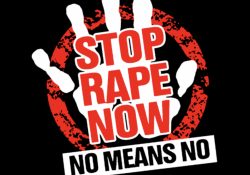Dear Liberian Men, No Means No
I am angry that my sisters, nieces, cousins, aunts and every other woman out there are walking targets because some men have chosen 5 minutes or less of pleasure over human lives and dignity, and worst of all, because some men have chosen to be silent and watch like it is okay. Continue Reading
